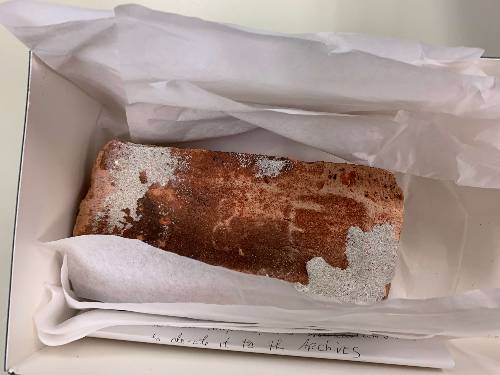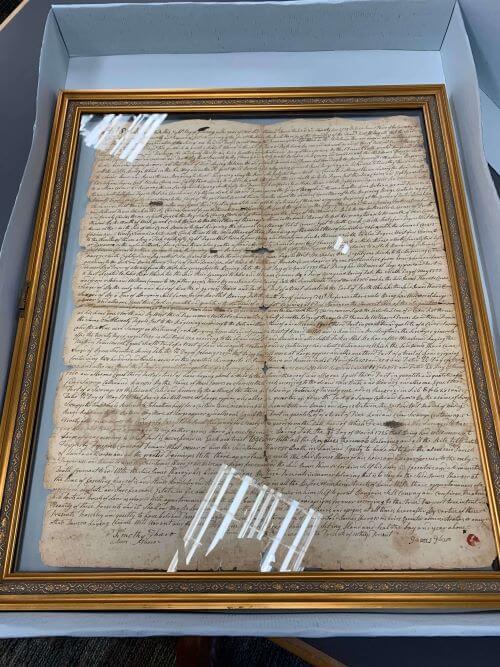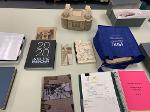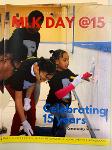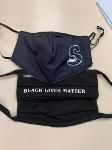The Archives: Home of Stockton Stories
By Laurie Melchionne
Nestled in the lower level of the Richard E. Bjork library, the Stockton University Archives and Special Collections features a road map of Stockton’s history. From a brick extracted off the Mayflower Hotel (Stockton’s campus before there was a campus), to the 1981 member roster of Phi Delta Kappa, to early proposals for the WIGS minor, the archives chronicle Stockton from conception to the present through the collection of these artifacts.
When one thinks of an archive, rows of books or catalogued boxes likely spring to mind. Not here at Stockton. Running the show are Heather Perez, Special Collections Librarian, and Louise Tillstrom, Principal Library Assistant, whose hands in the archives stretch far beyond the corners of the library. Heather’s job ranges from working with students and staff on class projects, to leading tours of the archives for incoming students, to organizing proposals for state grants.
Yes, Special Collections houses government documents, video tapes, and books, including an extensive amount of South Jersey history (its oldest artifact is a land deed from 1775). But what keeps Stockton’s cultural, historical, and economical story tangible are the gifts that people have donated to the archives throughout the decades. There are technical artifacts that tell Stockton’s story as a university--from early construction blueprints to resolutions for the president’s office. However, what Heather Perez seeks are glimpses into student life throughout the years.
“We need documentation of student organizations,” Heather told me while treating me to a tour of the artifacts. “We have things like blueprints and proposals for construction of buildings, but I want to know what the average student life was like in the 80s, 90s, and beyond. It’s why we are here, for the students, and I want to have their histories.”
There is a wide range of what constitutes tangible pieces of Stockton history that can make a home at the archives. Heather told me, “I’d love a scrapbook from things like the 80’s Chess Club or an old theater performance program, or just copies of people’s old class schedules and anything to do with their school experience.”
Standing over the Mayflower brick, stored in a sturdy gray box and wrapped in protective paper, Heather added, “It would be cool to get a key from a Mayflower faculty member’s office, or more pictures of inside the hotel.” Other than the brick from the Mayflower Hotel (which no longer stands), the archive boasts only one or two interior pictures of this historic building.
Another part of our history that is as important as Board of Trustees minutes or T-Shirts from MLK Days of Service, are the different college experiences of students who enrolled in Stockton later in life. Louise Tillstrom, Principal Library Assistant, mentioned older students who went back to school after getting laid off during the recession, who have vastly different college experiences than the average student enrolling straight out of high school. Heather added, “It’s equally important to document that, too.”
Documenting Stockton not only as an institution but as a culture has been something that Heather and Louise have perfected. Both of their jobs, while officially librarians, involve much more than cataloguing and archiving. For example, Louise cultivates exhibits, which involve student tours and receptions in the library. She has been working on one exhibition about agriculture in South Jersey since October. The exhibit is scheduled to be showcased in January.
Heather, who also has her hands in organizing exhibits, works side-by-side with Louise
almost daily. Louise said,
“We work well together and help each other, and I love my job!”
Without Heather and Louise, many of the artifacts that tell Stockton’s stories would go to waste, collecting dust in the bottom of someone’s closet. These two professionals are devoted to chronicling our university in a physical, tangible way, and the Special Collections and Archives wouldn’t be the same without them.
